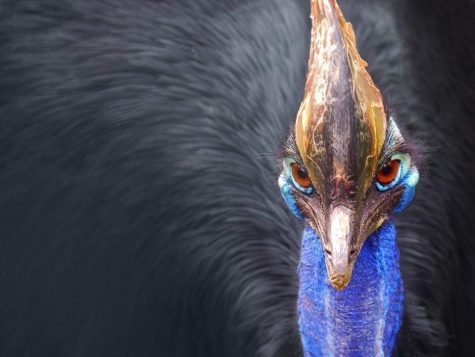Animals Will Be Animals
April 21, 2019

The cassowary is known as the world’s most dangerous bird.
Florida man, Marvin Hajos, was killed by his exotic pet bird after he fell down in his Gainesville home. Hajos raised the wild cassowary, an emu-like bird, on his farm.
According to authorities, Hajos alerted police early in the morning about the attack. He was then transported to a hospital where he died of the injuries he sustained. The cassowary remains on the property while officials investigate the nature of the attack. It is speculated, however, that the attack was in fact an accident.
The cassowary is considered to be “the most dangerous bird in the world” according to the San Diego Zoo. These flightless birds, native to Queensland, Australia and New Guinea, can grow to be up to 6 feet tall and can weigh up to 167 pounds. The San Diego Zoo states that the bird has a 3-toed foot with “dagger-like claws on the inner toe that is up to 4 inches long.” This clearly dangerous bird should not have been taken out of its natural habitat to be bred.
The Florida Fish and Wildlife Commission classifies the cassowary as “Class II Wildlife.” This means that the animals “pose a danger to people.” Other animals classified as Class II Wildlife are wolves, alligators, and bobcats. Eric Slovak, assistant curator of birds at The National Zoo in Washington stated that employees at the zoo never enter the secure cassowary enclosure because they can be dangerous when spooked. Cassowaries are largely considered as dangerous animals.
Although the death of Hajos was an unfortunate occurrence, it begs the question: should these animals be blamed for acting on their natural instincts? Cassowaries are known to be dangerous, non-domesticated animals that will react based on instincts. These animals were not meant to be kept as pets or to be bred outside of their natural habitats. It is unfair to blame these animals for simply being animals.
For instance, in 2016, a 17-year old gorilla from the Cincinnati Zoo by the name of Harambe, was killed after grabbing and killing a 3-year-old boy who fell into his enclosure. Harambe was simply an animal responding with his instincts. He did not deserve to lose his life for reacting normally, even if his actions lead to tragedy. On April 17th, 2019, a South Carolina couple was attacked by their pet deer. The husband’s injuries were fatal while the wife survived. The deer however was shot and killed on sight. The deer was yet another animal killed for using their natural instincts. It is extremely unfair and unjust to persecute animals for actions they have no control over. These animals do not have the cognitive reasoning to know right from wrong, therefore we cannot kill these animals because of their natural animal reactions.
The question now is: What will happen to the cassowary? The cassowary’s reaction to Hajos fall was normal. The wild bird is not to blame for acting on instinct. As the investigation continues, we can only hope that this animal will not be put to death for something it cannot control. When humans remove exotic animals from their natural habitat and keep them as pets, they run the risk of this animal harming them. We cannot blame these animals for their actions, nor can we expect them to adapt to a domesticated life.

